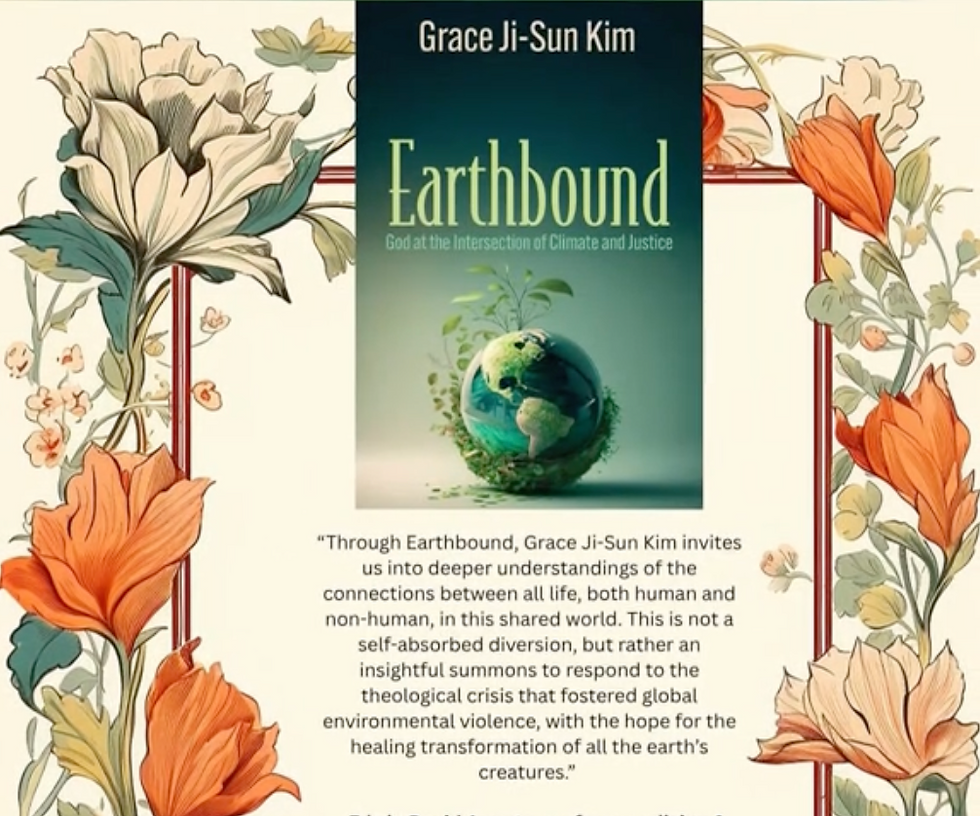Saving US
- Rick Bonetti
- Sep 12, 2022
- 3 min read
Updated: Sep 13, 2022

Dr. Katharine Hayhoe's most recent book on effectively communicating climate change is Saving Us: A Climate Scientist’s Case for Hope and Healing in a Divided World. Dr. Hayhoe is an evangelical Christian and "an accomplished atmospheric scientist who studies climate change and why it matters to us here and now. She is also a remarkable communicator who has received the American Geophysical Union’s climate communication prize, the Stephen Schneider Climate Communication award, the United Nations Champion of the Earth award, and has been named to a number of lists including Time Magazine’s 100 Most Influential People, Foreign Policy’s 100 Leading Thinkers, and FORTUNE magazine’s World’s Greatest Leaders. Her TED talk."
Dr. Hayhoe was live on zoom Sunday, September 11, 2022 at 3 p.m. PDT for the Rooted Together Green Team Summit’s keynote address, exploring her most recent book. Here is a condensed version of what she said:
“The most important thing you can do to fight climate change it to talk about it. First find those common values you share with another person and talk about how they are being affected by climate change. Then talk about a positive, constructive, solution to instill agency - to help people see that that boulder is rolling down the hill in the right direction, and it will go faster if they lend their hand."
"As a person of faith, the way I think about it is this: The only thing that counts is when our faith expresses itself through love. So when we talk to people, love is really important! Often we have a tendency to shame people to judge people with guilt. People play the zero-sum game of putting other people down to make ourselves feel slightly better. That is not love,"
"You know you can feel it when somebody comes at you with a judging finger. Right? And what does it make you want to do? Well, with me it just makes me want to go away and keep doing the thing i'm doing where they can't see me."
"So whatever our interactions with people, whatever our conversations with people, always think, “How can I be expressing love” - love for this person, love for our community, and love for all the diversity of life on this incredible planet that we live on and share with every other living thing."
"Quiz time. What do you do when someone thinks about climate change and gets worried? Do you load up all the scary facts about Antarctica and the Polar bears? No, you share two things:
How would it effect something you both care about? i.e. gardening, diving, hiking, your grandchildren, the place you live…
What does a positive, constructive solution looks like?
"And what happens? People feel empowered and action results. Why? Because that's the way our brains are wired according to the neuroscience. The human brain is built to associate forward action with the reward, not with avoiding harm. So reframe your message so the information you provide induces hope, not dread."
"How you do that? By connecting the head to the heart. By connecting the hands to the head and heart. That is how we spread hope."
"Does it really work? Well, it turns out we did an experiment that shows that it does! Yale researchers tested the impact when you start conversations or even short one minute videos with the issues that Republicans care about (like free market values or national security) and connected the dots to why climate change affected them, and what climate solutions look like. They found that there were significant changes in people's opinions literally from a one minute video."
"But you know what? There's one person who's a much better messenger than a scientist! Do you know who that is? You. And people we know are more effective messengers than scientists. People we know - friends, family acquaintances, colleagues are the most effective messengers."
"So when you have that conversation, begin with something you have in common; connect the dots; bring in a positive constructive solution; and remember that the goal of the conversation is love!"
"So that's why, when I wrote a book I called my book not saving the planet, I called it “Saving US.” because it really is about saving all of us together… and every other living thing that shares us home with us.”


Comments